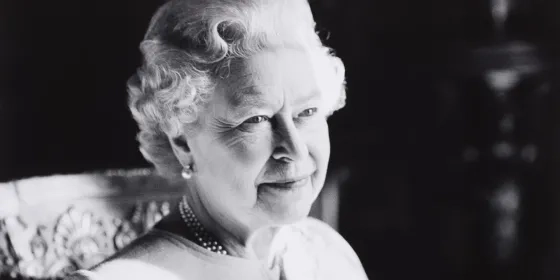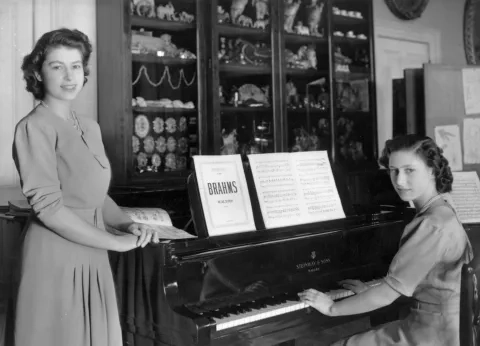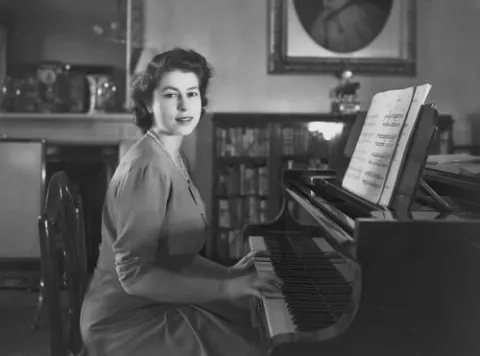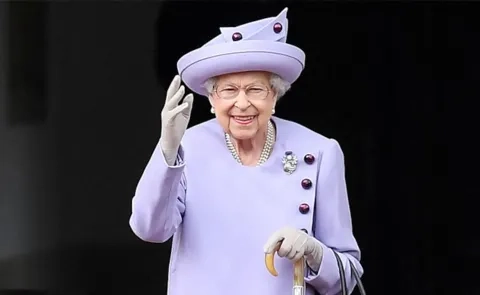SFCM Honors Queen Elizabeth II’s Contributions to Classical Music
Her Royal Majesty, 96, reigned longer than any other British Monarch and was a longtime champion of classical music.
By Mark Taylor
With a rule stretching across two millennia, Queen Elizabeth II lived a life of accomplishments. As sovereign for more than seven decades, she saw the country through prosperity and difficulty, all the while a staunch supporter of the arts and music.
According to royal officials, The Queen died peacefully at the age of 96 on Thursday in Scotland. Her passing was met with messages of grief and mourning all over the world.
Her son, now King Charles III, said in a royal statement, “The death of my beloved Mother, Her Majesty The Queen, is a moment of the greatest sadness for me and all members of my family. We mourn profoundly the passing of a cherished Sovereign and a much-loved Mother. I know her loss will be deeply felt throughout the country, the Realms and the Commonwealth, and by countless people around the world."
The loss is being felt at SFCM with people like Britain-born Nic Meredith, "I am saddened by her passing as the only monarch I have ever known, so this is indeed the end of an era," Meredith said. Born and raised in Winchester, England Meredith was a choral scholar at Pilgrims' school, and Head Quirister with the Winchester College Chapel Choir. He now lives in San Francisco and has been Director of Legacy Giving at SFCM for several years.
Her Majesty’s commitment to the arts and music can be traced back to her early years. At 11, then Princess Elizabeth learned to play piano and continued to play for her own enjoyment into her adult years. The Queen had two honorary degrees in Music, a Bachelor of Music from the University of London, and a Doctor of Music from the University of Wales. Both were awarded before she ascended the throne in 1952.
During her long reign, Queen Elizabeth became the patron of hundreds of music organizations and charities around the world including the London Symphony Orchestra, Royal Academy of Music, and Royal Choral Society to name a few. Her Majesty also frequently included musicians in The Queen’s Birthday Honours List, and often attended concerts.
In addition to being a longtime patron of music, Elizabeth also served as an inspiration for a number of works. In 1930, Edward Elgar, Master of the King's Musick at the time, dedicated one of his final compositions—Nursery Suite—to Princess Elizabeth, her newborn sister Margaret and their mother. Iconic British composer Benjamin Britten composed four works for the Royal Family, even arranging a version of the country's national anthem especially for Elizabeth II, a version still in use today. Aside from Britten’s opera, Gloriana, composed for her coronation in 1953, the composer's last completed piece, Welcome Ode, was written for her 1977 Silver Jubilee.
Her Royal Majesty also made historic moves in the world of music. In 2005, she introduced The Queen’s Medal for Music, to be presented to an outstanding individual or group of musicians who have had a major influence on the musical life of the nation. In 2014 she appointed the first female Master of the Queen’s Music, Judith Weir. The office is essentially the musical equivalent of the Poet Laureate and was established to recognize significant musicians of the era.
At Opus 3 Artists, which was acquired by SFCM in 2020, Conductor Sir Andrew Davis was knighted by Queen Elizabeth in 1999. He also conducted the Prom at the Palace concert, held in the gardens of Buckingham Palace as part of the celebrations for the Queen's Golden Jubilee in 2002.
While her monarchy lived overseas, Queen Elizabeth herself famously visited San Francisco in March of 1983 where three major celebrations welcomed the Royal party: A San Francisco salute including performer Mary Martin, the San Francisco Boys Chorus, the cast of Beach Blanket Babylon, and Tony Bennett.



